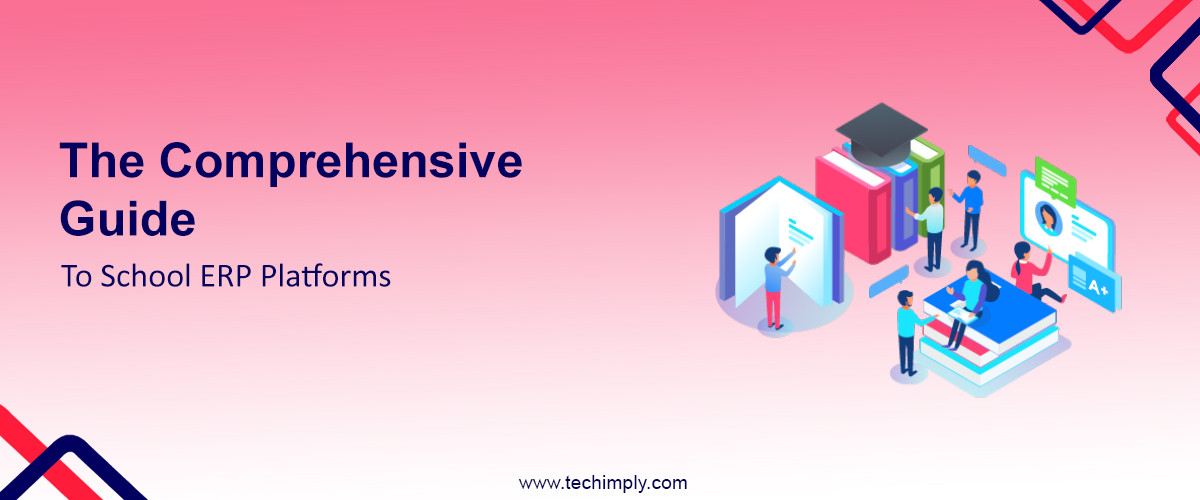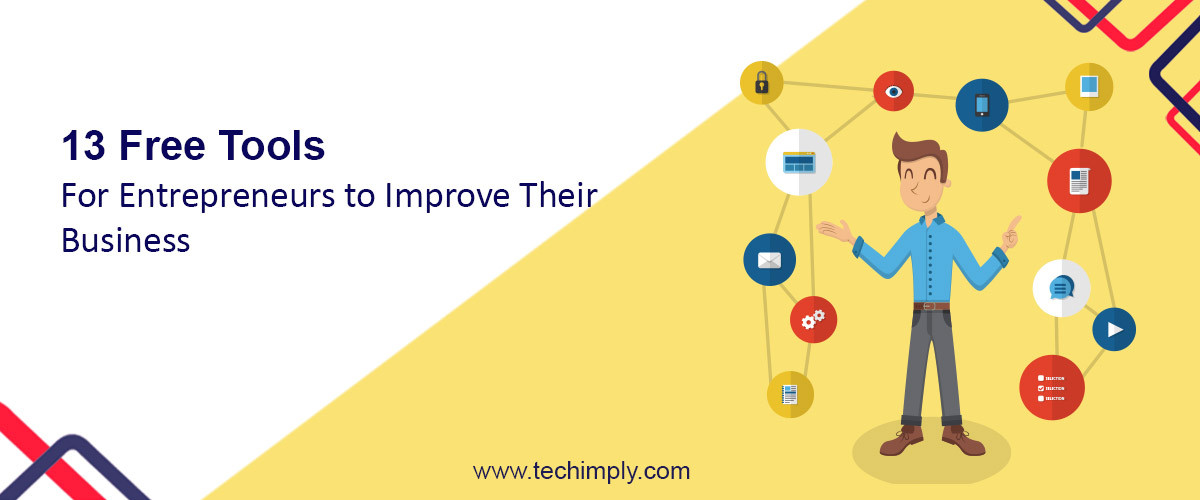School ERP platforms have become essential instruments in the ever-changing educational scene, transforming educational establishments' administrative and academic aspects. This thorough tutorial offers insights into the many functions of School ERP software, sometimes called school management or School ERP software, while navigating its complexities.
These systems have become essential to the smooth running of schools, helping to increase communication and make data-driven decisions while streamlining administrative work. Join us as we explore the vital elements, advantages, difficulties, and upcoming developments related to school enterprise resource management platforms, providing educational institutions with a complete road map to using these revolutionary tools.
Introduction to School ERP Software
A key component of contemporary educational technology, this software transforms educational administration by fusing a variety of functions into a single, easily accessible system. It is often referred to as school management software or School ERP since it simplifies academic procedures, automates administrative work, and promotes efficient communication.
This practical solution increases efficiency and transparency by effectively managing student information, attendance, schedule development, and financial transactions. School ERP software facilitates collaboration and informed decision-making among educators, administrators, and parents by providing user-friendly interfaces and real-time data access. It optimizes operations for improved educational outcomes, signalling a revolutionary change in the educational landscape.
Key Components of School ERP Platforms
School ERP (Enterprise Resource Planning) platforms are unique in the constantly changing field of educational technology since they combine various features into a single, integrated system. These platforms are essential for improving the effectiveness of educational establishments since they automate procedures and offer real-time data access. Examining the main elements of school ERP software is necessary to obtain a greater understanding of them:
Student Information Management
Student information management is crucial to centralizing student data and cornerstone of school ERP solutions. Personal information, academic records, attendance history, and performance measures are all included in this. By combining this data, administrators, and teachers will have easy access to current and accurate records, which will help them make well-informed decisions about the assistance and advancement of their students.
Module for Administration
The heart of each educational institution's daily activities is the Administrative Module. It includes several tasks: personnel management, scheduling, attendance tracking, and admissions. This module streamlines intricate administrative duties via automation, enabling educational institutions to function more smoothly and distribute resources more wisely.
The Management of Finance and Resources
Any educational institution's capacity to survive depends on its ability to handle its finances effectively. Accounting and resource management modules are included in school ERP platforms, which assist administrators in keeping tabs on spending, allocating resources, and tracking budgets. It guarantees the best possible use of financial resources and improves transparency.
Portals for Communication
One essential component of school ERP platforms is promoting efficient communication among stakeholders. The system's communication portals offer a centralized platform for announcements, circulars, and customized communication between students, parents, instructors, and administrators. This feature improves the entire learning process by fostering a cooperative and active learning community.
Management of Libraries
The effective management and organization of educational resources are made possible by the school ERP system's library management component. It has functions like library inventory management software, book circulation tracking, and cataloging. It guarantees the availability of educational resources and fosters a favourable learning atmosphere.
Schedule Administration
One of the most critical aspects of school administration is developing and maintaining timetables. With the help of timetable management modules specifically designed for school ERP platforms, organizations may effectively plan lessons, distribute resources, and prevent conflicts. This function guarantees a seamless flow of academic activities using the most available resources.
Monitoring Attendance
School ERP packages provide an accurate and time-saving procedure for automating attendance tracking. With the help of this component, teachers can digitally track and record student attendance. Administrators can more easily spot patterns in attendance and quickly address any issues using real-time information.
Human Resource Management
Staff-related process management is made more accessible using modules for Human Resource Management included in school ERP platforms. Features for employee attendance, payment processing, leave administration, and performance reviews might be included in this. These features help educational institutions' workforces become more productive and well-organized.
Access Control and Security
Security is a top priority since educational data is sensitive. Robust security features are incorporated into school ERP platforms to guard against data breaches and unauthorized access. Access control features protect critical data integrity and privacy by limiting access to specified information to authorized personnel only.
Benefits of Implementing School ERP Platforms
Efficiency and Time Savings
School ERP platforms allow teachers and administrators to concentrate on higher-value duties like curriculum development and student engagement by automating repetitive chores.
Improved Data Accuracy
The centralized architecture of ERP platforms lowers the possibility of data inaccuracies and inconsistencies, giving decision-makers access to current and correct information.
Better Communication and Collaboration
Seamless communication portals encourage cooperation between interested parties, resulting in an open and encouraging learning environment.
Data-Driven Decision Making
By enabling educational institutions to make deft decisions based on current data, school ERP software's analytics and reporting capabilities enhance overall strategic planning.
Enhanced Productivity and Efficiency
The notable increase in production and efficiency is one of the main advantages of school ERP solutions. When regular administrative duties are automated, teachers and administrators can concentrate more on strategic planning and educational outcomes.
Improved Capability to Make Decisions
Educational leaders are better equipped to make judgments when accessing real-time data and analytics. School ERP platforms offer insightful data on various management-related topics, helping administrators spot patterns, evaluate student progress, and make wise long-term plans.
Selecting the Appropriate School ERP software
Scalability and Customization
An effective school ERP platform should be able to expand with the institution and provide choices for customization to meet particular requirements.
User-Friendly Interface
Thanks to intuitive interfaces, teachers, administrators, and parents can more easily explore and use the program.
Integration Capabilities
Information may move smoothly between many departments and functionalities thanks to compatibility with other systems and technologies.
Security Measures
Strong security features are crucial to prevent unwanted access and data breaches because educational data is sensitive.
Implementing School ERP Platforms Presents Difficulties
Opposition to Change
Resistance to change is one of the main obstacles to implementing school ERP platforms. It could be difficult for staff members and educators to adjust to the new technology because they are used to traditional techniques.
First Expense and Resource Distribution
Even though there are many long-term advantages, implementing a school ERP platform might be expensive at first. Institutions must set aside funds for infrastructure, training, and software licenses.
Combining with Current Systems
Integrating a new school ERP platform can be a challenging procedure for organizations that are using legacy systems. Preparation and execution are needed to ensure data migration and a seamless interface with current systems.
Instruction and User Acceptance
Implementing school ERP platforms successfully requires enough training. For the system to be effective, all parties involved teachers, administrators, and support staff must be familiar with its operation.
Case Studies: Success Stories with ERP Implementation in Education
Transformational Impact on Academic Performance
Analyzing how data-driven interventions and personalized learning enabled by an educational ERP platform in schools improved student performance.
Simplifying Administrative Procedures
Outlining an instance where the use of school ERP software improved operational effectiveness and decreased administrative burden for an educational institution.
Upcoming Developments and Trends in School ERP Software
Integration of Artificial Intelligence and Machine Learning
A promising development is using AI and machine learning in school ERP Software. These tools can improve predictive analytics, automate tedious jobs, and give pupils individualized learning insights.
Cloud-Based Accessibility Solutions
Cloud-based school ERP software is becoming increasingly popular as the need for flexibility and remote access grows. Cloud solutions enable smooth cooperation among stakeholders by providing accessibility from any location.
Increased Security Protocols
Future school ERP platforms will probably include sophisticated security features like multi-factor authentication, biometric authentication, and encryption to protect sensitive data because data security is becoming increasingly important.
Developing Mobile Applications for Always-On Access
Creating mobile applications for school ERP platforms enables users to carry out tasks and access crucial data on the road. The increasing reliance on mobile devices for communication and information retrieval is consistent with this trend.
Conclusion
Educational institutions must embrace technology as they negotiate the complexity of contemporary education. School ERP platforms change how schools and colleges work by providing a holistic solution.
These platforms help to build a more cohesive, open, and productive educational ecosystem through better management and data-driven decision-making. By comprehending the essential elements, advantages, and difficulties linked with educational resource management software, establishments can make knowledgeable choices to advance their learning objectives in the long run.
You Also Like To See: How to Select the Right School Management Software?



.jpg)
.jpeg)

